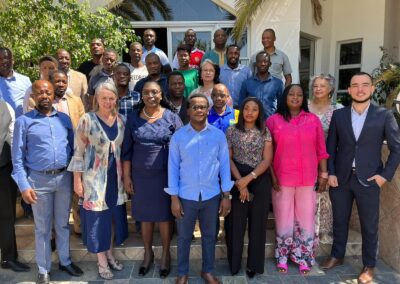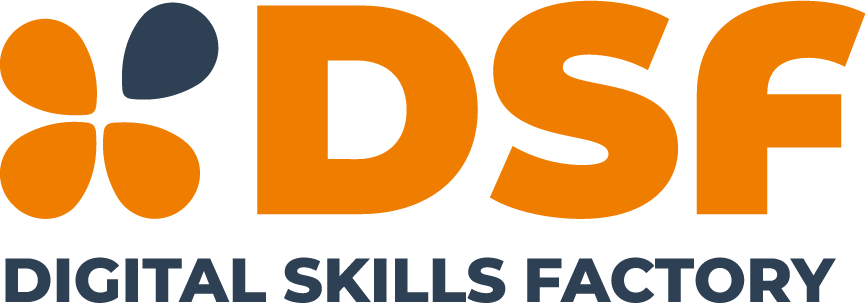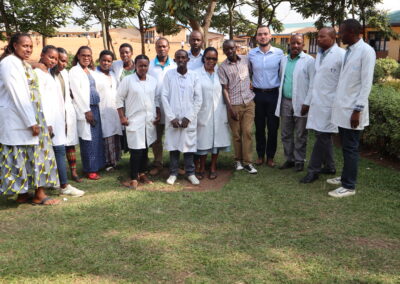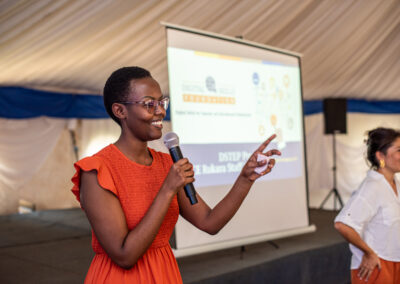IMPACT STORY
Upscaling Digital Literacy Skills and 21st Century Pedagogical Training for Namibia’s Education Workforce
Face to face the trainers session in the January 2023 for 200 teachers.
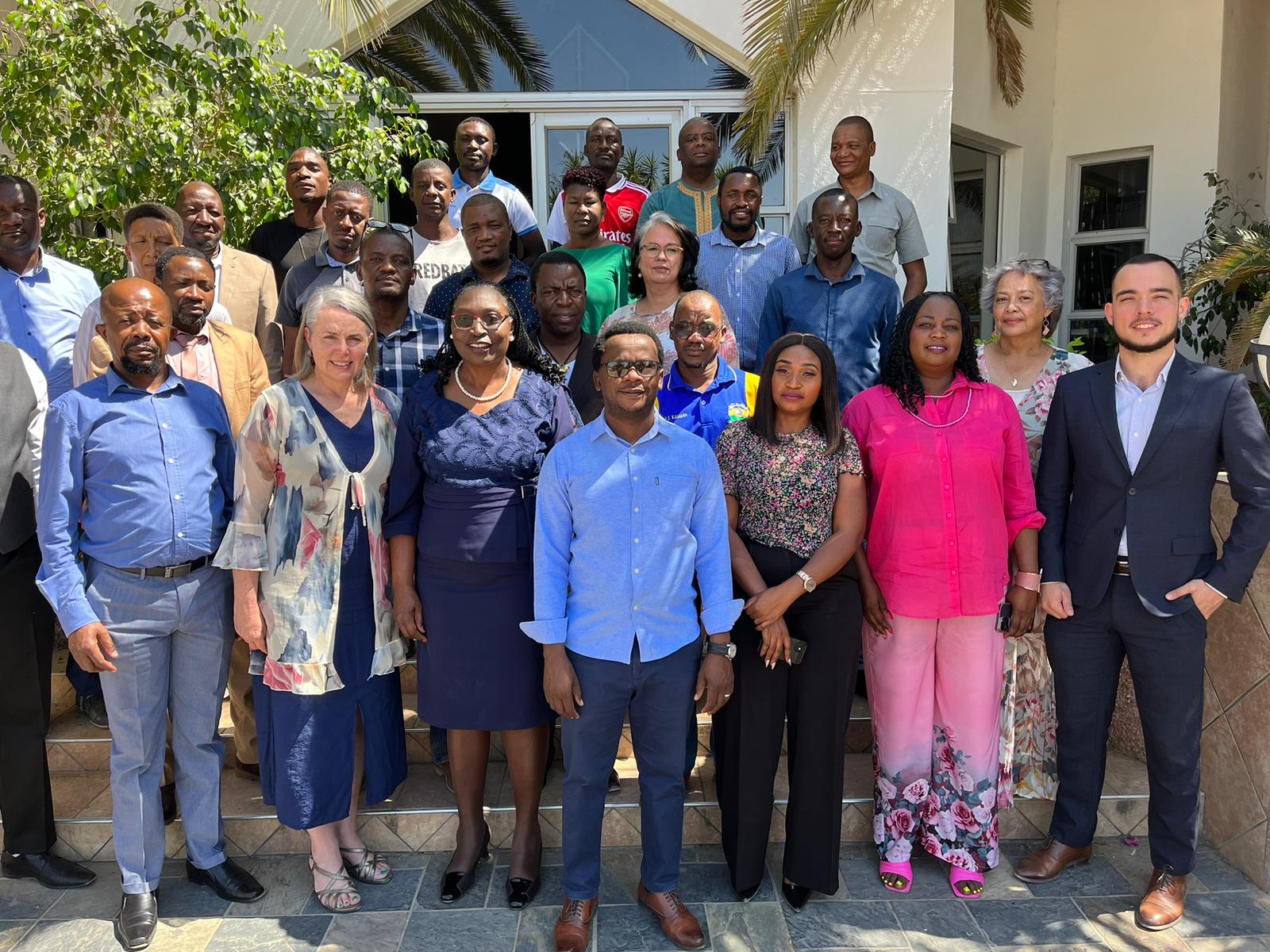
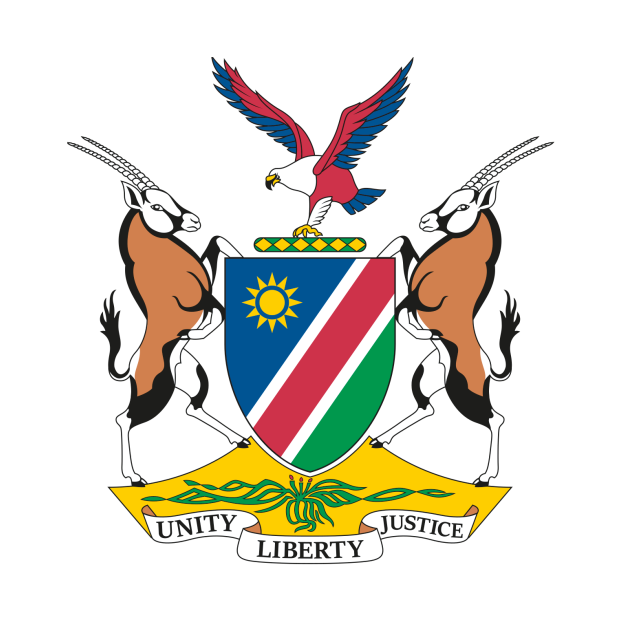
OBJECTIVES
Namibia has demonstrated strong leadership in transforming its education system through the integration of inclusive digital learning. Recognizing the urgent need to equip educators with foundational digital literacy and 21st-century teaching skills, the Ministry of Education, Arts, and Culture prioritized scalable blended learning and accelerated the rollout of the School Educational Information Management System (SEIMS).
The DSF program has supported this national vision by training Master Trainers, improving coordination, and strengthening learner support through regional face-to-face inductions, centralized registration, and ongoing communication via online meetings and WhatsApp groups. The DSF platform is empowering educators across the country. Refresher workshops for Master Trainers further underscore Namibia’s commitment to sustainable digital education for all.

Key Metrics
Certified teachers
%
Satisfaction rate
Testimonials
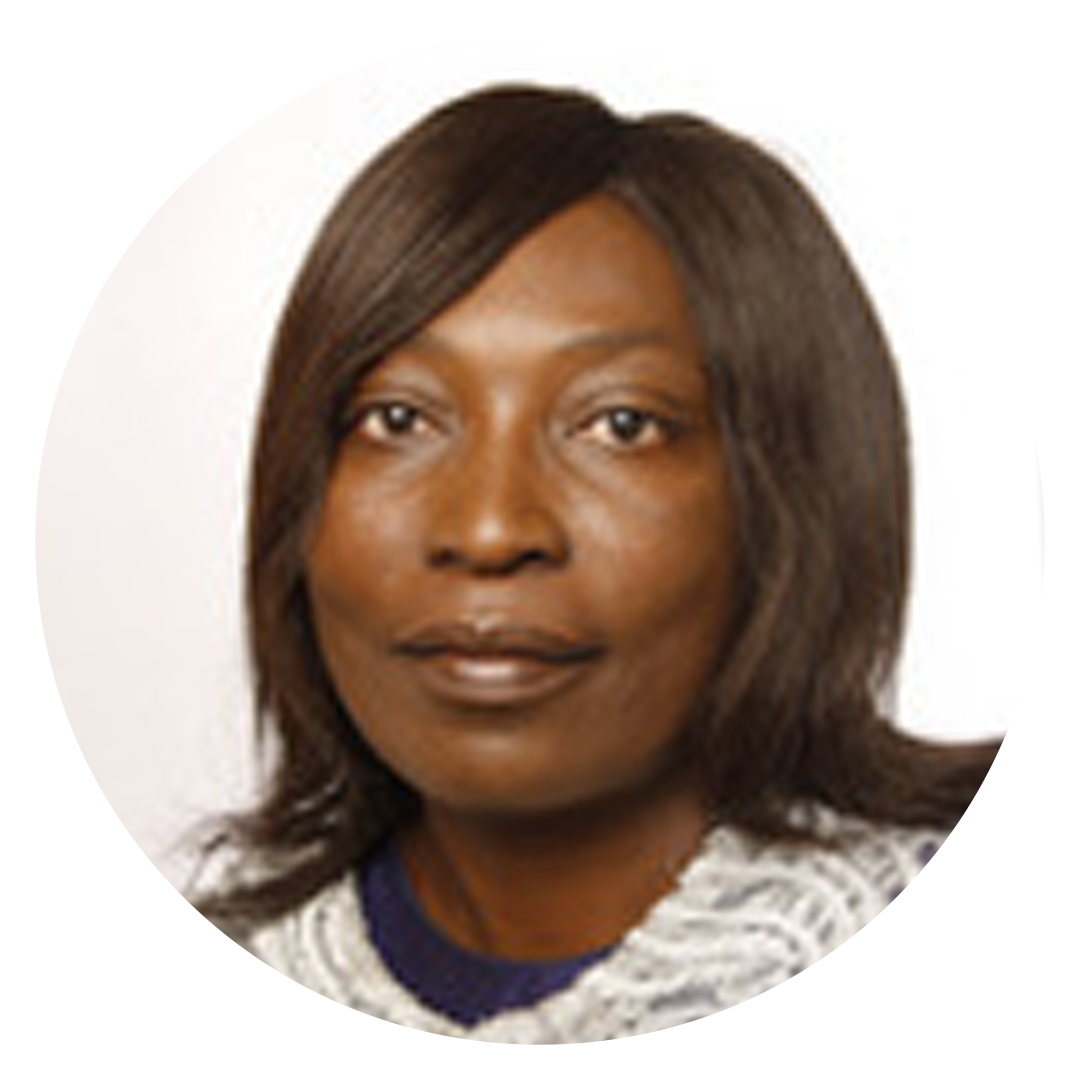
” The implementation of the program has presented various challenges, such as issues with connectivity, devices, and exam schedules. Nonetheless, it has also provided us with valuable insights into how we can execute this program on a larger scale for the benefit of teachers and students across the country. Working with DSF has been a transparent and solution-focused collaboration aimed at addressing the challenges that have emerged. The platform and courses are comprehensive and user-friendly. We are eager to expand this program to encompass the entire country and would welcome the opportunity to do so. “
Testimony of Honorable Faustina CALEY
Former Deputy Minister of Education, Arts and Culture

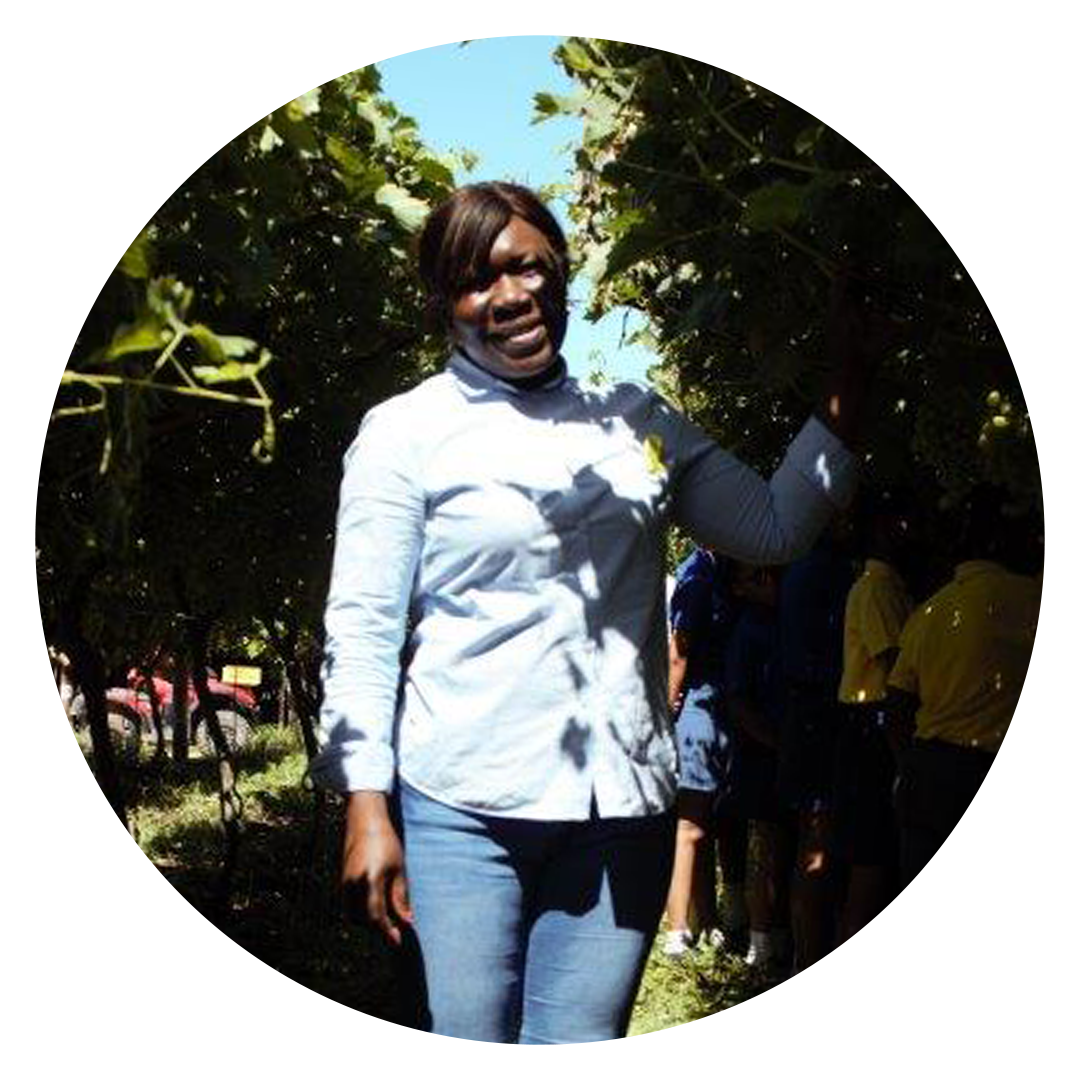
As you get older, you become less confident in your abilities, and this is especially true when it comes to using technology. If you did not grow up during the technological boom, it might be difficult to keep up with all the latest apps and ways of using technology. DSF eliminated the uncertainty surrounding technology in the classroom. You won’t need to ponder any longer what a term means or how to use it. With the knowledge of what to anticipate and how to address it, I could now start a blended classroom with ease. Because the students in our remote schools do not have access to the internet, Wi-Fi, computers, or cellphones, integrating the remaining technology proved more difficult. But because I learned how to do it through DSF, I could give them the resources they needed for their research. DSF has made it easier and pleasurable for me to integrate technology into my classroom, use movies and slides, respond to inquiries, and set up an opinion poll.”
Johanna-Maré Strauss
Natural Science and Home Ecology teacher Grades 4 – 7
Ariamsvlei Primary School
OUTCOMES
DSF’s training program significantly improved teachers’ digital literacy through access to Office 365 and online platforms. In partnership with the Ministry of Education, Arts and Culture, the blended model—combining face-to-face workshops, virtual sessions, and regional WhatsApp groups—strengthened communication and introduced innovative teaching practices. A total of 2,582 teachers participated, earning 2,664 certificates as part of a national pilot rollout. Feedback was very positive, with teachers requesting more time to deepen their learning. The program has reinforced Namibia’s commitment to inclusive, tech-driven education.
COURSES
Digital Competency Passport for Educators
Digital Competency Passport for Employment
Teacher Well-Being
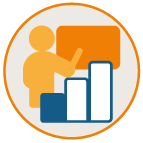
21st Century Teaching : Essentials
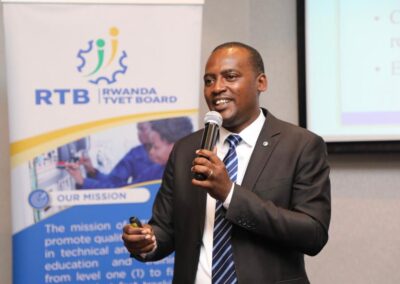
Transforming Vocational Training (TVET) in Rwanda through digital literacy and 21st century pedagogy
